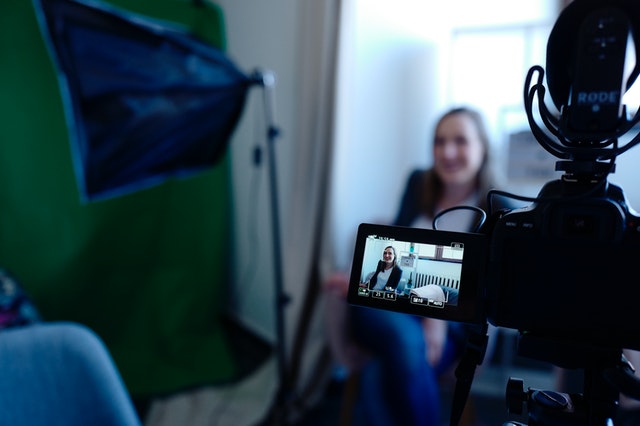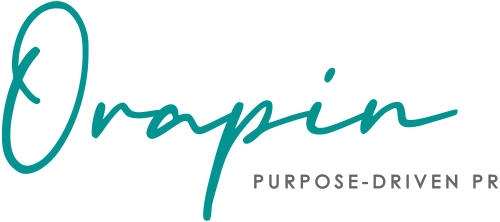
When pitching the media, the ideal outcome is the reporter requests an interview to discuss your organization or area of expertise. An interview usually means that you and/or your organization will be featured, or at the very least included, in the article or broadcast segment, meaning you have the opportunity to share your vision on a particular topic or details on your organization’s important work in front of a target audience. All a win-win situation, right? Right!
But just as important as landing that interview opportunity is executing the actual interview with grace and panache. You will want to appear knowledgeable, credible, approachable, and share information of value to the media outlet’s audience, ALL at the same time. Some people are born with this skill set and media interviews are no problem. For the rest of us, a little bit of preparation and practice is recommended! Here is our guide to prepare for, and nail, a media interview.
Research
Once you have an interview scheduled, do your research on both the reporter and the publication. Take a look at the reporter’s social media handles and read their past articles or watch past segments. Review their profile information, usually posted on the media outlet’s website or on LinkedIn. Getting to know who you will be talking to will give you a good sense of their interview style, topics that interest them, and anything that you might have in common. For example, reviewing the reporter’s Twitter handle might show you that they have a particular interest in children’s welfare issues, so they’ll be coming into the upcoming interview regarding your organization’s focus on children’s mental health services with significant existing knowledge and background. Or perhaps their online profile shows that you share an alma mater or hobby. Knowing these facts about the reporter can help build rapport with them as an individual which in turn can help yield a better interview.
In addition to researching the reporter, also spend some time reviewing recent articles and content from their publication or media outlet. Get to know the journalistic style of the publication to know how in-depth the interview may go into your particular area of expertise. Not all media outlets are created equal. Podcasts are a great example. If you’ve listened to The Daily podcast from The New York Times, you know that Michael Barbaro dives deep into a particular topic on each episode. But other news pods like NPR’s News Story of the Day will do more of a blanket overview of the days’ news and your segment may be very surface-level.
In addition to reviewing recent articles or segments, take a look back through the publication’s archives to see if they’ve ever covered your particular area of expertise. Understanding the angle that they’ve taken in the past when covering your topic will help you better prepare for your interview.
Prepare
Always prepare before the interview! It is OK to ask the reporter what questions or what types of questions they are planning to ask. You may also request information on the backstory of the interview, if there is a specific incident or scenario the interview will relate to, if there is an agenda, and ‘why now?’. Some reporters will provide you with their planned interview questions, some may just provide an overview of the direction of the interview. Either way, use the information provided to outline your talking points. Here are a few key pointers:
- Make sure you have outlined the key messages, call to action, or important details that you absolutely want to make sure make it into the interview.
- If it helps illustrate your cause or work, think of a few examples of anecdotal stories that you’d like to share.
- Have metrics, stats, or figures outlined and ready to share with the reporter if needed.
- Think about how you will answer tough questions. Preparing statements in advance can help ensure you’re ready to speak about topics that require lengthy explanations or that touch on sensitive subject matter.
Practice
Practicing with a friend or colleague before the interview can help ease jittery nerves and ensure your upcoming interview goes smoothly. We especially recommend you take time to practice (or, best case, that you do a full media-training session!) prior to broadcast segments. Have someone record you so you can see what you look and sound like during the interview. Reviewing a video of yourself can help determine if you’re clearly explaining your key messages and if you are coming across as credible and approachable. Further, practice videos will help you notice any unconscious fidgeting, funny facial expressions, or if you are speaking clearly. It can be very difficult to watch oneself with a critical eye, but time spent practicing will help ensure your upcoming interview goes smoothly!
Tips from the experts
Even the most seasoned interview pros can get stuck in tricky interview situations. Here are a few tips to make sure your interview goes smoothly.
- Talk in sound bites: For both print/digital and broadcast interviews, try to respond to questions in quotable quotes or sound bites. You won’t have control over how the final story is edited, so try to craft your responses in complete sentences when possible. For example, if a reporter asks, “Are you seeing increased interest in composting as a result of your organization’s education program?” Don’t respond with a simple “Yes.” A better response would be: “Yes, as a result of Composting in Denver’s educational outreach program we have seen a 75% increase in composting city-wide over the past three months.”
- Bridging: If you do media interviews often, it is inevitable that you’ll be asked a tough or oddball question at some point. When you’ve been asked something that you either can’t or prefer not to answer, use a bridging technique. Bridging is a way to bring the interview back to the topics you want to discuss and signal to the reporter about what you’re willing to talk about. Never say “No comment!” The following phrases provide a good bridge to get the interview back on track:
-
- “What’s more important is…”
- “While I can’t speculate on that, what I can share with you is…”
- “What concerns me even more is…”
- “From my perspective…”
- Be natural, approachable, and build trust: Try to relax and be yourself. Remember that you are an expert and people want to hear what you have to say. Maintain credibility by being honest, never fudge or speculate on facts. Be approachable by speaking plainly and clearly, avoid jargon and complicated acronyms. Try to maintain an aura of “friendly, yet authoritative.”
Remember, doing media interviews have many great benefits for your organization, so taking the time to prepare and nail the interview is always worth the effort. A successful interview will position you as an expert in your field, generate awareness for your cause, and can be a great point of differentiation from your competitors. So keep pitching and practicing so that once you’re in front of the camera, you’ll be ready to shine.
Diana Crawford is a seasoned public relations consultant with more than 15 years of agency, consulting, and in-house experience. She joined Orapin in 2013 and manages account services and client communications strategy development. She has worked across a variety of industries and has expertise with professional services, food/alcohol, health and wellness, lifestyle, sports, education, tech, and non-profit organizations.
